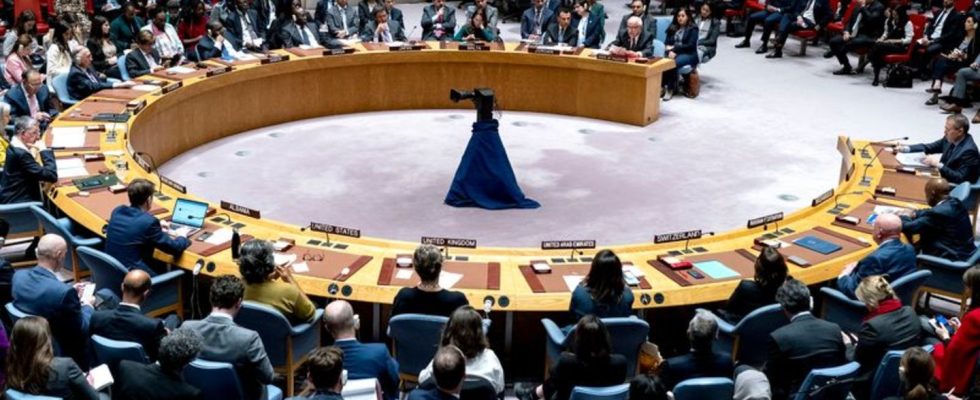War in the Middle East
Brazil’s Middle East resolution: UN Security Council continues discussions
Palestinian UN Ambassador Riyad Mansour (right in the background) speaks to members of the Security Council at the United Nations in New York. photo
© Craig Ruttle/AP/dpa
While Israel appears to be imminent in a ground offensive in the Gaza Strip, a draft resolution on de-escalation fails at the United Nations in New York. What’s next?
The UN Security Council has held a much-anticipated vote on a Brazilian de-escalation resolution Middle East postponed to today, Tuesday. The most powerful UN body is scheduled to meet again at 6 p.m. New York time (midnight CEST), the German Press Agency learned from diplomatic circles. The United Arab Emirates and other states had previously insisted on further negotiations on the text.
In its draft, Brazil, which currently chairs the most powerful UN body, demands, in addition to access for humanitarian aid, that Israel – without directly naming the country – reverse its request for the evacuation of the civilian population from the northern Gaza Strip. All parties to the conflict must also adhere to international law.
Reference to international law
The Brazilian draft also condemns the Hamas attack on Israel as a “heinous attack.” It is emphasized that both parties to the conflict must adhere to international law. United Nations buildings and institutions must be protected. Brazil adjusted the text again on Monday night following requests for changes from Great Britain, France and the United Arab Emirates.
Acceptance of the Brazilian draft is considered questionable. In the past, the USA had protected its ally Israel from unpleasant resolutions with its right of veto. An acceptance requires at least nine yes votes from the 15 members, and there may be no veto. In addition to the USA, Russia, China, France and Great Britain have veto rights.
Russian design failed
Yesterday, a Russian draft resolution did not receive the required majority in the Council. The text only received 5 of the 15 possible votes. The paper called, among other things, for a “humanitarian ceasefire” and the release of the Israeli hostages in the Gaza Strip. However, the terrorist attack by Hamas was not directly condemned in the Russian draft. The UN Security Council votes increase the pressure, especially on Israel, which appears to be on the verge of a ground offensive in the Gaza Strip. Resolutions of the UN body are binding under international law.

